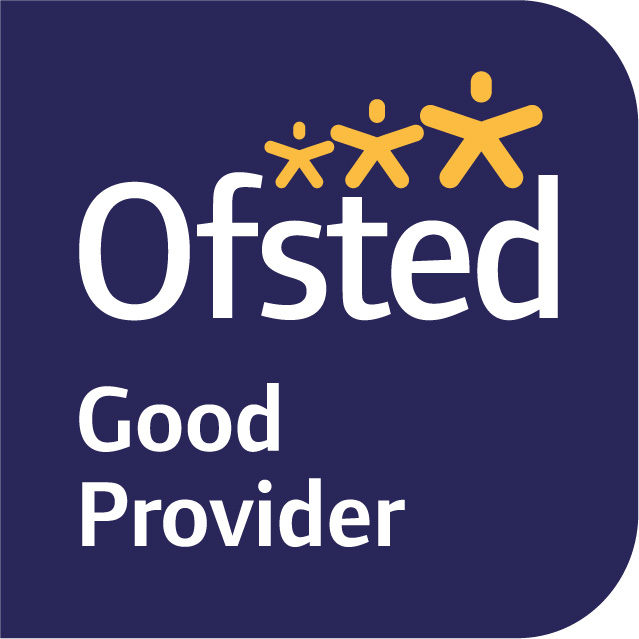Our Intent: Why our Geography curriculum looks like this
The Green Lane Geography curriculum includes termly topics for all children from Year 1 to Year 6. We offer a high-quality Geography education that will:
- inspire in pupils a curiosity and fascination about the world and its people;
- equip pupils with knowledge about diverse places, people, resources and natural and human environments;
- help pupils to develop a deep understanding of the Earth’s key physical and human processes;
- help pupils to deepen their understanding of the interaction between physical and human processes, and of the formation and use of landscapes and environments;
- help pupils to develop geographical knowledge, understanding and skills;
- provide the framework and approaches that explain how the Earth’s features at different scales are shaped, interconnected and change over time.
Because of this, we feel it is important for the subject to be taught discretely as well as incorporated within other curriculum subjects.
What are the aims of the Green Lane Curriculum for Geography?
The Green Lane Curriculum for Geography follows the aims of the National Curriculum to ensure that all pupils:
- develop contextual knowledge of the location of globally significant places – both terrestrial and marine – including their defining physical and human characteristics and how these provide a geographical context for understanding the actions of processes;
- understand the processes that give rise to key physical and human geographical features of the world, how these are interdependent and how they bring about spatial variation and change over time;
- are competent in the geographical skills needed to:
- collect, analyse and communicate with a range of data gathered through experiences of fieldwork that deepen their understanding of geographical processes;
- interpret a range of sources of geographical information, including maps, diagrams, globes, aerial photographs and Geographical Information Systems (GIS);
- communicate geographical information in a variety of ways, including through maps, numerical and quantitative skills and writing at length;
Geography Subject Content: Key Stage 1
Pupils should develop knowledge about the world, the United Kingdom and their locality. They should understand basic subject-specific vocabulary relating to human and physical geography and begin to use geographical skills, including first-hand observation, to enhance their locational awareness.
Pupils should be taught to:
Locational knowledge
- name and locate the world’s 7 continents and 5 oceans
- name, locate and identify characteristics of the 4 countries and capital cities of the United Kingdom and its surrounding seas
Place knowledge
- understand geographical similarities and differences through studying the human and physical geography of a small area of the United Kingdom, and of a small area in a contrasting non-European country
Human and physical geography
- identify seasonal and daily weather patterns in the United Kingdom and the location of hot and cold areas of the world in relation to the Equator and the North and South Poles
- use basic geographical vocabulary to refer to:
- key physical features, including: beach, cliff, coast, forest, hill, mountain, sea, ocean, river, soil, valley, vegetation, season and weather
- key human features, including: city, town, village, factory, farm, house, office, port, harbour and shop
Geographical skills and fieldwork
- use world maps, atlases and globes to identify the United Kingdom and its countries, as well as the countries, continents and oceans studied at this key stage
- use simple compass directions (north, south, east and west) and locational and directional language [for example, near and far, left and right], to describe the location of features and routes on a map
- use aerial photographs and plan perspectives to recognise landmarks and basic human and physical features; devise a simple map; and use and construct basic symbols in a key
- use simple fieldwork and observational skills to study the geography of their school and its grounds and the key human and physical features of its surrounding environment
Geography Subject Content: Key Stage 2
Pupils should extend their knowledge and understanding beyond the local area to include the United Kingdom and Europe, North and South America. This will include the location and characteristics of a range of the world’s most significant human and physical features. They should develop their use of geographical knowledge, understanding and skills to enhance their locational and place knowledge.
Pupils should be taught to:
Locational knowledge
- locate the world’s countries, using maps to focus on Europe (including the location of Russia) and North and South America, concentrating on their environmental regions, key physical and human characteristics, countries, and major cities
- name and locate counties and cities of the United Kingdom, geographical regions and their identifying human and physical characteristics, key topographical features (including hills, mountains, coasts and rivers), and land-use patterns; and understand how some of these aspects have changed over time
- identify the position and significance of latitude, longitude, Equator, Northern Hemisphere, Southern Hemisphere, the Tropics of Cancer and Capricorn, Arctic and Antarctic Circle, the Prime/Greenwich Meridian and time zones (including day and night)
Place knowledge
- understand geographical similarities and differences through the study of human and physical geography of a region of the United Kingdom, a region in a European country, and a region in North or South America
Human and physical geography
- describe and understand key aspects of:
- physical geography, including: climate zones, biomes and vegetation belts, rivers, mountains, volcanoes and earthquakes, and the water cycle
- human geography, including: types of settlement and land use, economic activity including trade links, and the distribution of natural resources including energy, food, minerals and water
Geographical skills and fieldwork
- use maps, atlases, globes and digital/computer mapping to locate countries and describe features studied
- use the 8 points of a compass, 4- and 6-figure grid references, symbols and key (including the use of Ordnance Survey maps) to build their knowledge of the United Kingdom and the wider world
- use fieldwork to observe, measure record and present the human and physical features in the local area using a range of methods, including sketch maps, plans and graphs, and digital technologies
Please click here to view our subject content by topics for KS1 and KS2.
Implementation and Impact: How do we teach our Geography curriculum and what is the purpose of our Geography curriculum?
| IMPLEMENTATION | IMPACT |
| Knowledge Organisers and Knowledge Walls Children have access to key language and meanings in order to understand and readily apply to their written, mathematical and verbal communication of their skills, in a purposeful context. This promotes connections to be made across all foundation subjects where applicable. Subject Specific Vocabulary Identified through knowledge organisers and knowledge wall and highlighted to the children at the beginning of lessons and revisited through class discussions and knowledge quizzes. The promotion of a language rich Geography curriculum is essential to the successful acquisition of knowledge and understanding in Geography. Resources Children will access resources to acquire learning through atlases, text books, maps, digital technology and photographs. Children will use a range of secondary resources to develop their knowledge and understanding that is integral to their learning. Outdoor Learning Opportunities Children will have opportunities to learn in our outdoor learning environment. This may be using the school grounds, local area or wider community to apply and explore their subject specific task. Educational Visits to Enhance Cultural Capital Where applicable links to geography will be made to develop the children’s topical learning. British Values and PSHE Children will learn and revisit the importance of our world and how it should be treated through a range of cultural capital activities and experiences. Approaches to Teaching A wide variety of teaching approaches are used in geography lessons to ensure children make good progress, and all learning styles are catered for. Class teachers ensure there is a good balance of whole class, group work and individual learning in geography lessons. Recap of Prior Learning Lessons will develop long term memory by allowing for repetition of learning within the year and year on year. | Children will be equipped with geographical skills and knowledge that will enable them to be ready for the curriculum at Key Stage 3 and for life as an adult in the wider world. Children will develop their knowledge of Geopgraphy as they move through school. They will be exposed to new and specific vocabulary and meanings and be encouraged to use this in lessons. Children will achieve age related expectations in Geography at the end of their cohort year. Children will enjoy learning about geography, therefore encourage them to undertake new life experiences now and in the future. Children will develop their map skills and become familiar with the countries and continents which they are studying. They will be encouraged to find specific countries, cities, landmarks and oceans on the map which is specific to their topic. Children will develop a clear and confident understanding of their own community and locality. Children will have a good understanding about the world around them and how it has been shaped. Children will work in a small group, with a learning partner and independently depending on the lesson. They will support each other as well as being responsible for their own learning. |
Pedagogy
| Our Teaching Sequence |
| Placing of the Geography being studied in the context of previous learning, using maps/atlases Brief review of learning covered in previous lesson/s Specify key vocabulary to be used and its meaning Conduct geographical enquiry using a variety of sources Interpret their findings Communicate their geography knowledge and understanding appropriately Evaluate their learning and compare with other historical periods studied as appropriate |
| Possible Pedagogical Approaches used in Geography |
| Direct teacher instruction; modelling of skills and techniques; demonstration Inquiry-based learning; outdoor learning Teacher modelling; mix of individual, paired and group instruction Pupil-led learning; opportunities to showcase learning Being introduced to the key vocabulary that a geographer would use; defining the key vocabulary that a geographer would use; high expectations of pupils ‘talking’ like a geographer; high expectation of pupils researching, interpreting and presenting like a geographer. |
Please click here to view our Progression of Skills for Geography.








